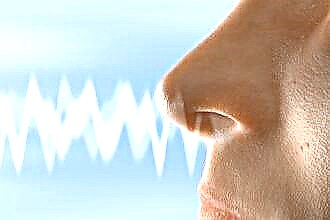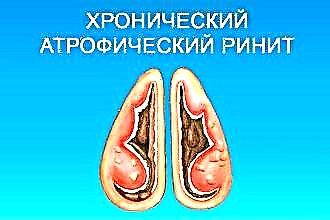The modern rhythm of life forces a person to have a snack on the run, sit at a computer for a long time and often lead a hypodynamic lifestyle. All this, along with a hereditary predisposition and bad habits, can lead to a violation of lipid metabolism, accompanied by "clogging" of blood vessels. What kind of doctor treats atherosclerosis and is it worth worrying about this - we will talk about this today.
What is vascular atherosclerosis
Atherosclerosis is generalized, that is, a systemic pathology, which is characterized by the presence of specific fatty plaques on the walls of blood vessels. Both large and medium arteries, which have many branches (aorta, external and internal carotid arteries, brachiocephalic trunk), and areas of small diameter (coronary vessels of the heart) are affected. The formation of a "build-up" covering the lumen occurs in several stages:
- First, the inner lining of the vessel is damaged. This can be triggered by the action of an infectious agent (virus or bacteria). At the site of this defect, cholesterol begins to be deposited and a lipid spot appears.
- As it progresses, the volume of education increases, plaque is formingprotruding into the lumen of the artery. An inflammatory process develops, accompanied by the proliferation of connective tissue fibers.
In practice, we observe two ways for the further existence of lipid protrusion: either it occurs calcification (atherocalcinosis), or the surface ulcerates and a thrombus forms. The latter can block the vessel in place or "break off" and be carried by the blood stream (embolism).

Causes of the disease
The main cause of vascular atherosclerosis has long been a violation of lipid metabolism, which is expressed in an increase in the concentration of "harmful" fats in the blood:
- cholesterol,
- triglycerides,
- low and very low density lipids.
Many external and internal factors lead to an increase, some of which a person is able to influence, others - it is impossible to change. I have listed most of them in the table below.
Unmodifiable | Partially modifiable | Modifiable |
|
|
|
Symptoms
Unfortunately, it is impossible to notice the symptoms of vascular atherosclerosis at the first stage of its development. I advise my patients who have reached a critical age to undergo a prophylactic examination and check at least once a year blood lipid level... This is the only way to determine the problem in time, without waiting for the development of complications (stroke, myocardial infarction, arterial aneurysm, etc.).
I draw your attention to the following fact: the signs of the disease entirely depend on the vessels of which of the organs have suffered to a greater extent. Favorite locations: brain, heart, upper or lower extremities, kidneys, thoracic and abdominal aorta.
Atherosclerosis can be manifested by:
- headache and dizziness, loss of memory and attention;
- pain in the legs while walking;
- chest discomfort, shortness of breath;
- hypertension.
Which doctor should I go to?
Plaque deposition occurs in the vessels, and the organs that feed on them suffer from this. Who exactly treats atherosclerosis in this case? The truth is that this pathology is encountered by most doctors and requires a multidisciplinary approach.
Usually, the first doctor who is contacted at the stage of identifying the disease is the therapist. He also prescribes a diagnostic minimum and directs it to a narrow specialist, taking into account the specifics of the patient's complaints. In case of damage to the organs of the nervous system (dizziness, memory impairment, movement disorders), further treatment is carried out neurologist... If atherosclerosis involves the vessels of the extremities or the abdominal aorta, consultation will be required surgeon... Chest pain, difficulty breathing and swelling are the basis of the visit cardiologist.
All these doctors often resort to help angiologists or angiosurgeons, that is, those who are directly involved in vascular pathologies. It is they who decide the questions about the expediency of surgical intervention.
Diagnostics
Diagnostic measures for atherosclerosis include:
- biochemical blood test and lipid profile;
- ECG;
- ultrasound dopplerography, duplex, triplex scanning of blood vessels;
- angiography when indicated.
Expert advice
Treatment of the disease is difficult, since it requires the patient not only to take the drugs on time, but also to comply with certain rules. I recommend to my patients to radically change their lifestyle. It is necessary to go in for sports, give up alcohol and smoking, normalize the daily routine, leaving 6-7 hours to sleep. You need to reconsider your eating habits: eat more vegetables, fruits, cereals, seafood. Read about the diet for atherosclerosis here.
Treatment consists in taking lipid-lowering drugs:
- statins (Atoris, Krestor, Rosulip);
- fibrates (Grofibrat, Lipantil, Trilipix);
- fatty acid sequestrants (Guarem);
- nicotinates (nicotinic acid).
More information about drugs for atherosclerosis, the duration of the course and the rules of admission - in the article at the link.
Clinical case
A 65-year-old man, P., came to see me with complaints of recurrent pressing headache, ringing and cracking in the ears, dizziness accompanied by unsteadiness while walking, memory impairment of recent events. From the anamnesis: for the last six months he has noticed an increase in blood pressure, has not received any treatment. He does not abuse alcohol, has been smoking for about 40 years. Objectively: alimentary obesity (BMI = 28), BP 155/100 mm Hg, diffuse cerebral microsymptomatology is observed in the neurological status (limitation of gaze upward and to the sides, slight asymmetry of the nasolabial folds). Preliminary diagnosis: cerebral atherosclerosis, encephalopathy I.
The following examination methods were used: clinical and biochemical blood tests, ECG, triplex scanning of the vessels of the head and neck. The diagnosis was confirmed. They were appointed: "Atoris", "Cardiomagnil", "MagneV6", "Cytoflavin", "Enap", "Gliatilin". After two weeks of therapy, the patient noted an improvement in his condition.
And what drugs did the doctor prescribe for you for atherosclerosis and how often did he order you to be tested? In such cases, it is important to adhere to the protocol so as not to aggravate the existing problem. Share your answers in the comments and we will help you with advice.



